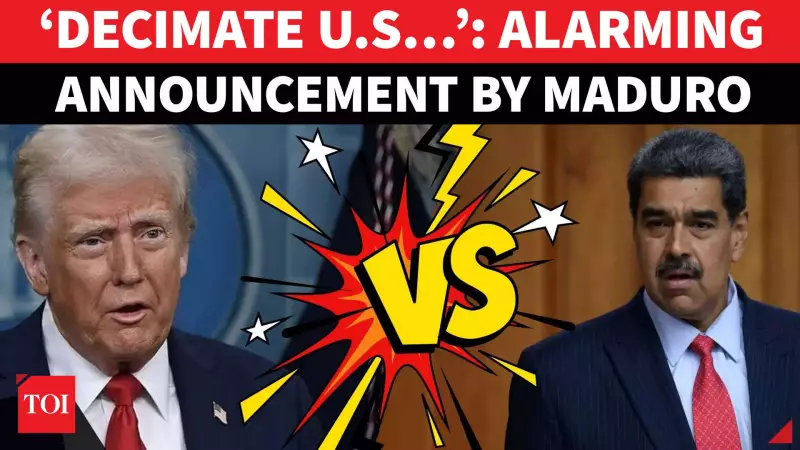
Venezuelan President Nicolás Maduro has dropped a political bombshell, alleging that the Central Intelligence Agency (CIA) is actively plotting his overthrow amid heightened regional tensions. This explosive claim comes as United States warships have docked in Trinidad and Tobago, just miles from Venezuelan waters, creating a dramatic geopolitical standoff in the Caribbean.
The Allegations That Shook International Relations
During a nationally televised address, Maduro made startling revelations about what he describes as a "coordinated conspiracy" against his government. The Venezuelan leader accused CIA operatives of meeting with opposition figures to orchestrate a plan that would destabilize his administration and potentially lead to military intervention.
"We have concrete evidence of these meetings," Maduro declared, his tone firm and uncompromising. "The imperial forces will not succeed in their attempts to undermine Venezuelan sovereignty."
US Naval Presence Fuels Speculation
The timing of Maduro's allegations coincides with the arrival of US Navy vessels in Trinidad and Tobago, a development that has raised eyebrows across international diplomatic circles. While Washington maintains the deployment is part of routine military exercises and diplomatic engagements, Caracas interprets it as a deliberate show of force.
Regional security analysts note that the proximity of American warships to Venezuelan territory creates a volatile situation that could escalate rapidly. The Caribbean nation has long been a focal point of US foreign policy concerns, particularly regarding energy resources and regional influence.
Historical Context of US-Venezuela Relations
This latest confrontation continues a long-standing pattern of tension between Washington and Caracas:
- Economic sanctions imposed by the US have crippled Venezuela's oil-dependent economy
- Previous attempted coups and political instability have marked the relationship
- Competing regional alliances with Russia and China complicate the geopolitical landscape
- Humanitarian concerns have been cited by both sides to justify their positions
International Reaction and Next Steps
The international community watches with growing concern as this situation develops. Regional bodies including the United Nations and Organization of American States are monitoring the escalating rhetoric between the two nations.
Meanwhile, diplomatic channels remain open, though both sides appear to be hardening their positions. The coming days will be crucial in determining whether this confrontation leads to renewed dialogue or further escalation in one of the Western Hemisphere's most persistent geopolitical conflicts.





